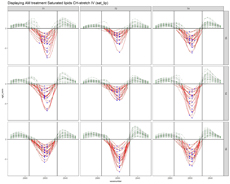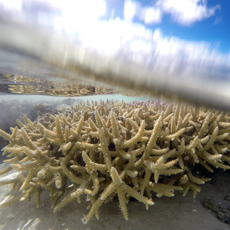C
oral reefs form one of the most magnificent and diverse ecosystems on the planet. As foundation species, reef-building corals are essential to the health and functioning of the ecosystem, providing a valuable food resource and habitat through their structural complexity. Corals are comprised of an animal host and microalgal symbiont that live in a mutually beneficial symbiotic relationship that underpins the success of corals in the nutrient poor waters of the tropics. However, corals live close to their thermal tolerance, making them vulnerable to warming sea temperatures, which can result in bleaching (loss of symbionts from the coral tissue); a physiological response whose underlying cellular mechanism remains unknown. With the imminent threats from warming oceans due to climate change, there is a pressing need to protect and preserve this unique and vulnerable ecosystem.
T
his project aims to resolve the biomolecular fingerprint of host and symbiont cells across different species of corals during the bleaching process using synchrotron-based InfraRed (IR) microspectroscopy, and through this, provide novel insight into the metabolic changes occurring within the coral leading up to the expulsion of its life-giving symbionts. The proposed research is significant because it will provide clues to the mechanism underpinning this detrimental response and by comparing responses across species, these data will allow us to generate a conserved metabolic fingerprint of coral bleaching for the early detection of physiological stress.
|

|
| FTIR spectral peaks of lipid band region in Acropora millepora. |

|
| Colony of Acropora aspera on the Heron Island reef flat. |
|
